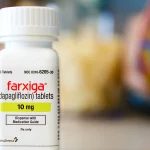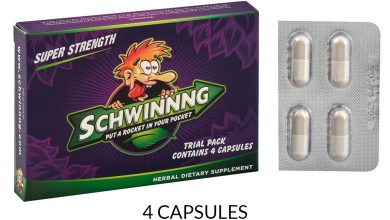List of Drugs That Can Cause Heart Failure

The term “heart failure” can be frightening. It doesn’t mean the heart has “failed” or stopped working. It means the heart doesn’t pump as well as it should. Heart failure is a major health problem in the United States, affecting about 5.7 million Americans. About 550,000 new cases of heart failure occur each year. It’s the leading cause of hospitalization in people older than 65.
Almost 6 million Americans have heart failure, and more than 870,000 people are diagnosed with heart failure each year. The condition is the leading cause of hospitalization in people over age 65. But now a study shows heart failure is on the rise in younger people too. And more are dying from it.
Heart Failure and Medications
Studies have found that most drugs can have adverse cardiovascular effects, ranging from abnormal heart rate to heart attack. Drug-induced heart failure should be regarded as a potentially preventable cause of heart failure.
A large body of evidence from controlled clinical trials has led to an improved understanding of well-established causes of drug-induced heart failure symptoms (e.g., thiazolidinediones, certain older chemotherapy agents) while implicating a wide range of other commonly used drugs and drug classes (e.g., tyrosine kinase inhibitors, biological response modifiers) as having causal or contributory roles.
Among the various medications cited in cases of drug-induced heart failure, some have been linked to significantly increased risks of stroke, myocardial infarction, and death, particularly in patients with existing cardiovascular disorders or risk factors.
In recent years, post-marketing and surveillance data have linked a number of newer medications including the antiarrhythmic dronedarone, the antifungal itraconazole, and the anti-cancer drugs trastuzumab, lapatinib, and bevacizumab to serious cardiac effects not reported during clinical trials.

List of Medications and Recreational Drugs That Can Cause Heart Failure
The following medications can raise your risk of heart failure or related problems:
Blood pressure medicine. Calcium channel blockers can worsen edema or fluid that stays in your body’s tissues. Central agonists (clonidine, moxonidine) cause changes in the way your body releases hormones that affect your heart.
Diabetes medications. Your body gets rid of metformin through your kidneys, so it isn’t a good choice if your kidneys don’t work as they should. Thiazolidinediones (pioglitazone, rosiglitazone) cause fluid retention and weight gain in people with heart failure and make people who don’t have it more likely to get it.
Nonsteroidal anti-inflammatory drugs (NSAIDs). Prescription NSAIDs include diclofenac, ibuprofen, indomethacin, and ketorolac. NSAIDs can boost heart failure odds because they make you retain water and salt, make it harder for your blood to flow, and make it tougher for diuretic drugs (often used to treat high blood pressure) to work.
Other types of drugs that can bring on heart failure include:
• Antifungal medications
• Stimulants
• Tumor necrosis factor (TNF) inhibitors
Over-the-Counter Drugs
You may not think twice about taking over-the-counter (OTC) drugs for minor things like a headache or stuffy nose. But if you’re at risk of heart failure, or if you already have it, you might want to limit or avoid some medications.
Natural Supplements
There’s no government regulation of natural supplements, so you can’t always be sure the package contains what the label says it does. Some can cause serious risks, especially if you have a health condition.
That goes for vitamins, too. They seem harmless because they occur naturally in food. But in pill form, it’s a different story. More than 400 IU of vitamin E daily can increase your chances of developing heart failure.
Supplements can also interact with other drugs. One natural product may be fine for your neighbor but put your health at risk.
Tell your doctor about every natural supplement you take so you can find out the pros and cons. In the meantime:
• Don’t take vitamins or supplements to prevent cardiovascular problems or improve heart failure symptoms.
• Avoid products that contain ephedra (you may see ephedrine as part of their name). They affect your blood pressure and heart rate.
Avoid products that can interact with heart medications, like digoxin and blood thinners.
Recreational drugs that can effect the cardiovascular system
Some recreational drugs too can trigger heart failure, they include:
- Cocaine
- DMT
- GHB
- Heroin
- Inhalants
- Ketamine
- Khat
- LSD
- Marijuana
- MDMA
- Mescaline (Peyote)
- Methamphetamine
- PCP
- Steroids (appearance- and performance-enhancing drugs)
- Synthetic Cannabinoids
- Synthetic Cathinones
- Tobacco, Nicotine, and Vaping





